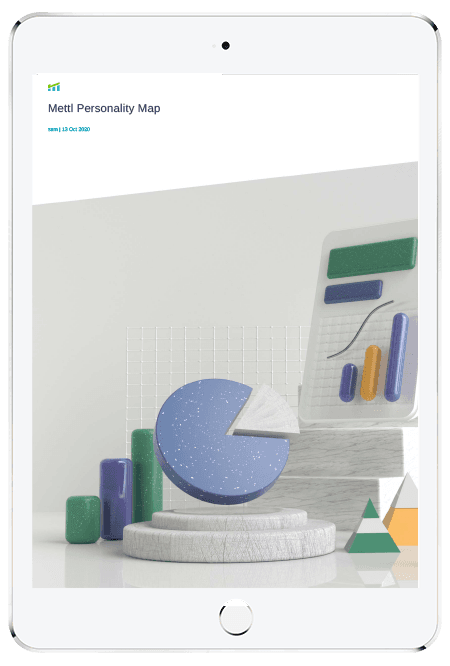Data Analyst (Using R) Test - Evaluate candidates' R and data skills efficiently
The Data Analysis (Using R) Test is an online technical assessment that enables hiring managers and recruiters to assess candidates' R proficiency and data analysis skills. This comprehensive evaluation identifies developers capable of handling complex data challenges, ensuring well-informed hiring decisions for roles such as business analysts, data scientists, data analysts, data visualization creators, etc.
Ready to Use
Coding
1-4 years
Moderate
60 minutes
19 MCQs + 1 coding
Data analyst - R, Data engineer - R
English Global, English India, Indonesian, English UK, English Singapore, English UAE, English Indonesia
Inside this Data Analyst (using R) Assessment
The Data Analyst (Using R) Assessment is a pre-hire testing process to evaluate candidates' proficiency in R programming, libraries, and data analysis skills. This test offers a comprehensive evaluation across various R competencies, including R programming, which covers functions, general R knowledge, performance, data prediction, data manipulation, indexing and subsetting data frames, and filters. Moreover, the assessment focuses on essential topics of R libraries such as dplyr, ggplot2, tidyr, and boxplot.
The test also includes a hands-on programming section with a coding question to allow applicants to demonstrate their R programming skills, facilitated through a programming simulator. This ensures that candidates possess theoretical knowledge and, at the same time, can effectively apply their R skills in real-world data analysis scenarios.
By administering the Data Analyst Test, one can make informed decisions and hire data analysts capable of efficiently executing complex data analysis tasks.
The test helps to gauge candidates’ suitability for the following roles:
Data analyst - R
Data engineer - R
Overview
Skilled data analysts proficient in R programming are among the most in-demand professionals globally. Nowadays, the pressing priority for hiring the best data analysts is observed in many companies and industries. Any business that excessively relies on data needs skilled analysts to analyze it. A data analyst generates insights using data so stakeholders can make business decisions and reach meaningful conclusions. The analyst's role and KRA will vary slightly across industries, organizations, and departments.
Even for aspiring data analysts or researchers, the knowledge from importing and cleaning data to manipulating and visualizing it in R is necessary. R skills are invaluable for analysts in addition to understanding popular R packages like - ggplot2, dplyr, etc. As they work with various crucial datasets, data analysts are known for their statistical skills for hypothesis testing, data manipulation, and exploratory data analysis (EDA) skills.
With data becoming the most important currency for businesses to operate at their maximum potential, hiring top data analyst talent has become the foremost concern for employers. In addition, hiring candidates for data analyst roles has become arduous because finding high-quality talent in a highly competitive job market is more challenging than it seems. Moreover, talent assessment is significantly difficult because the one-size-fits-all approach does not work here, and every organization's talent needs are specific to its business objectives.
An efficient way to determine if a candidate is a good fit for the role is to assess an applicant's employability skills using the Data Analyst with R Programming Test in the hiring process. Hiring managers will understand how much the candidate's on-the-job skills and work readiness match the organization's requirements with this online screening method.
As candidates undergo the vetting and screening through the Data Analysis (Using R) Test, employers can rest assured that the selected candidates are up to the required standard regarding skills, competencies, and experience. Moreover, the assessment result reports thoroughly capture every aspect of an examinee's performance and give in-depth insights into their potential fit.
SKILL LIBRARY
The data analyst skill assessment gauges expertise in performing data analysis and statistical operations in the R language. This online assessment is created by a team of SMEs and is ideal for assessing beginner to moderately experienced data analysts.
Data Analyst (using R) Assessment Competency Framework
Get a detailed look inside the test
Data Analyst Competencies Under Scanner
Data Analyst (using R) Assessment
Competencies:
The R programming section evaluates candidates' proficiency in various areas, including functions, performance, data prediction, data manipulation, indexing, general knowledge, and subsetting data frames and filters.
The test also assesses candidates' skill sets in popular R libraries such as dplyr, ggplot2, tidyr, and boxplot.
In the hands-on programming section, candidates are presented with a coding question in R and must solve it using a programming simulator. This section allows candidates to demonstrate their practical 'R' coding skills.
Customize This Data Analyst Skills Test
Flexible customization options to suit your needs
Choose easy, medium or hard questions from our skill libraries to assess candidates of different experience levels.
Add multiple skills in a single test to create an effective assessment. Assess multiple skills together.
Add, edit or bulk upload your own coding questions, MCQ, whiteboarding questions & more.
Get a tailored assessment created with the help of our subject matter experts to ensure effective screening.
The Mercer | Mettl Data Analyst Assessment Test Advantage
Frequently Asked Questions (FAQs)
1. What are the essential skills for data analysts?
Listed below are some must-have skills for data analysts:
- R or Python statistical programming
- Data visualization
- Critical thinking
- SQL
- Machine learning
- Microsoft Excel
- Presentation skills
2. How to secure the best data analysts for your team?
Listed below are some must-have skills for data analysts:
- R or Python statistical programming
- Data visualization
- Critical thinking
- SQL
- Machine learning
- Microsoft Excel
- Presentation skills
3. What is a data analyst hiring assessment?
Listed below are some must-have skills for data analysts:
- R or Python statistical programming
- Data visualization
- Critical thinking
- SQL
- Machine learning
- Microsoft Excel
- Presentation skills


